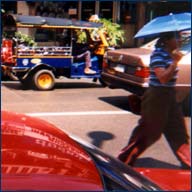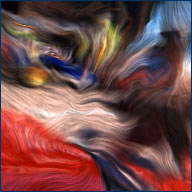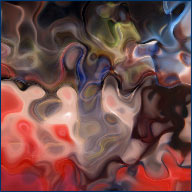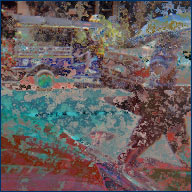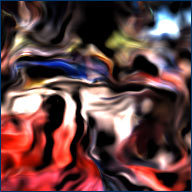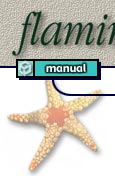


Twist
Twist distorts images by smearing them around in a smooth or turbulent way.
Illustrated installation instructions are online.
To use this software, you need a paint program which accepts standard Photoshop 3.0 plugins.
Just put the plug-in filter into the folder where your paint program expects to find it. If you have Photoshop, the folder is Photoshop:Plugins:Filters or Photoshop:Plug-ins. You must restart Photoshop before it will notice the new plug-in. It will appear in the menus as Filters->Flaming Pear->Twist.
Most other paint programs follow a similar scheme.
If you have Paint Shop Pro: you have to create a new folder, put the plug-in filter into it, and then tell PSP to look there.
PSP 7:
Choose the menu File-> Preferences-> File Locations... and choose the Plug-in Filters tab. Use one of the "Browse" buttons to choose the folder that contains the plug-in.
The plugin is now installed. To use it, open any image and select an area. From the menus, choose Effects->Plug-in Filters->Flaming Pear->Twist.
PSP 8, 9, and X:
Choose the menu File-> Preferences-> File Locations... In the dialog box that appears, choose Plug-ins from the list. Click "Add." If you are using PSP 8 or 9, click "Browse". Now choose the folder that contains the plug-in.
The plugin is now installed. To use it, open any image and select an area. From the menus, choose Effects->Plugins->Flaming Pear->Twist.
Controls
When you invoke Twist, a dialog box will appear:
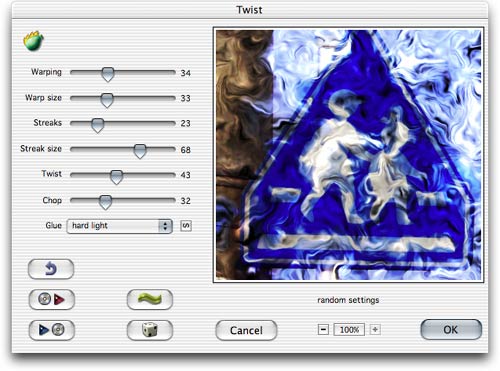
| Quick start |
|||
| If you just want to see some effects quickly, click the dice button
until you see something you like; then click OK.
Using the dice is the easiest way to use Twist. If you want to hand-tune your own effects, it helps to learn the controls, which are explained below. |
dice |
|
Version 1.55 June 2007 Fixes a problem where the plug-in wouldn't remember its registration when it was installed in one user account but activated in another. Version 1.4 July 2004 Works in 16-bit color. Version 1.3 December 2003 Recordable as a Photoshop action. Version 1.25 September 2003 Adds more glue modes and the next-glue button. Version 1.22 February 2003 Adds more glue modes and fixes a crash that could happen when using the menus under Windows XP. Version 1.21 December 2002 Adds new glue modes: Color, Luminance, Linear Light, and Pin Light. Fixes the appearance of text in the interface when running under Mac OS X 10.2.3 . Version 1.2 February 2002 Adds previews in the preset browser. Version 1.1 September 2001 Adds an Undo button. Version 1.0 September 1999 First release. |
You can place an order online here. A secure server for transactions is available.
Answers to common technical questions appear on the support page.
For bug reports and technical questions about the software, please write to support@flamingpear.com .
